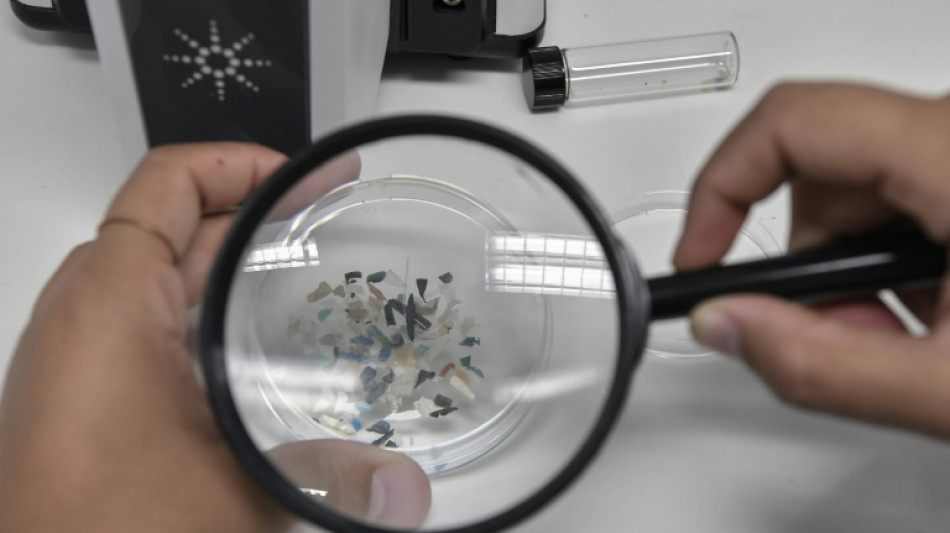
-
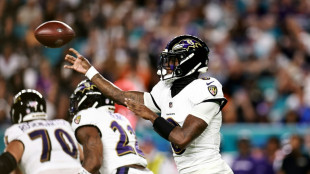 Jackson throws four TD passes as Ravens rout Dolphins
Jackson throws four TD passes as Ravens rout Dolphins
-
NBA champs Thunder roll past Wizards, Bucks and Spurs win

-
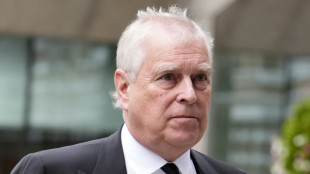 UK's Andrew in freefall, stripped of queen's protection
UK's Andrew in freefall, stripped of queen's protection
-
Real Madrid and Barcelona aim to shake off Clasico consequences
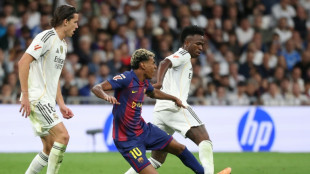
-
 Ambitious Paris FC making steady progress after landing in big time
Ambitious Paris FC making steady progress after landing in big time
-
Rebuilt Leverkusen hope to reignite Bundesliga rivalry at Bayern

-
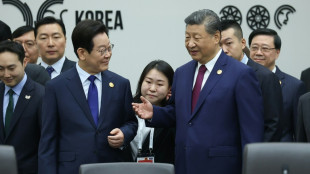 Xi primed to meet Japan, Canada leaders after Trump summit
Xi primed to meet Japan, Canada leaders after Trump summit
-
Australia coach Schmidt pleads for Edmed patience ahead of England clash

-
 Liverpool feel pressure to end 'crisis' run, Man City test Bournemouth limits
Liverpool feel pressure to end 'crisis' run, Man City test Bournemouth limits
-
Farrell eyes 'reset' as Ireland-All Blacks ready for 'Battle of Chicago'

-
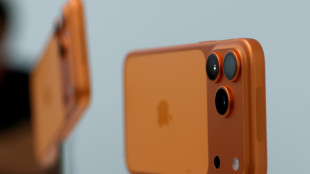 Asia markets mostly up on heels of Apple, Amazon earnings
Asia markets mostly up on heels of Apple, Amazon earnings
-
Jones wants Japan to enhance 2015 legacy against South Africa

-
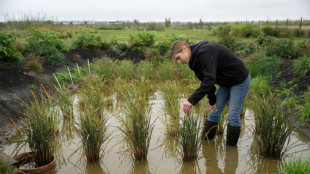 Growing rice in the UK 'not so crazy' as climate warms
Growing rice in the UK 'not so crazy' as climate warms
-
Australia say 'let ourselves down' after India end world domination
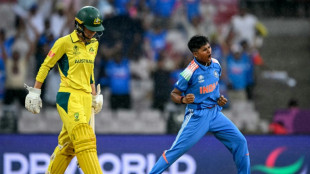
-
 AI cannot make cinema, director Linklater says
AI cannot make cinema, director Linklater says
-
After delays, Egypt set for lavish opening of grand museum

-
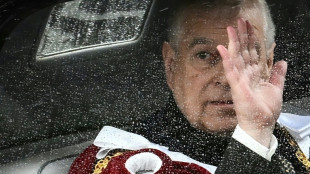 What we know about the downfall of Andrew, born a UK prince
What we know about the downfall of Andrew, born a UK prince
-
Desperate Dodgers mull using Ohtani as relief pitcher

-
 Blue Jays vie to close out sputtering Dodgers in World Series
Blue Jays vie to close out sputtering Dodgers in World Series
-
Indigenous Australians celebrate historic state treaty

-
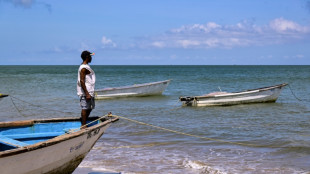 Caught between Venezuela and US, Trinidad fishermen fear the sea
Caught between Venezuela and US, Trinidad fishermen fear the sea
-
Latest NFL Chiefs-Bills duel has both chasing division leaders
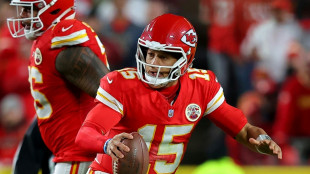
-
 Sierra Leone chases rare repeat in Breeders' Cup Classic
Sierra Leone chases rare repeat in Breeders' Cup Classic
-
King Charles strips Andrew of royal titles, Windsor home
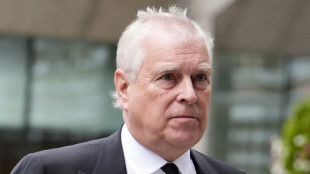
-
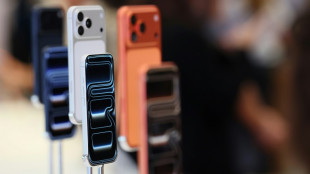 Sales of 'services' help Apple beat earnings forecasts
Sales of 'services' help Apple beat earnings forecasts
-
Beyond words: '67' crowned 'Word of the Year'
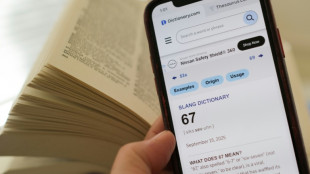
-
 Amazon shares surge as AI boom drives cloud growth
Amazon shares surge as AI boom drives cloud growth
-
Brazil boasts drop in deforestation ahead of UN climate talks
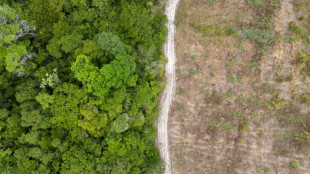
-
 Russians marking Stalin's repression warn against return to past
Russians marking Stalin's repression warn against return to past
-
Stocks mostly fall as investors digest Trump-Xi talks, earnings
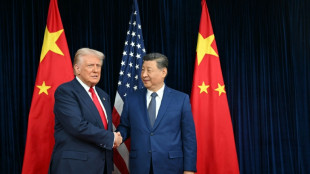
-
 Turkey says Pakistan-Afghanistan talks to resume
Turkey says Pakistan-Afghanistan talks to resume
-
Record-breaking India upset Australia to reach World Cup final

-
 US to limit refugees to record low 7,500, mostly white South Africans
US to limit refugees to record low 7,500, mostly white South Africans
-
King Charles to strip Andrew of royal titles, residence: palace
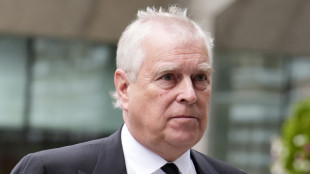
-
 Sinner marches into Paris Masters quarters, Bublik downs Fritz
Sinner marches into Paris Masters quarters, Bublik downs Fritz
-
Devastated Caribbean assesses damage as hurricane eyes Bermuda
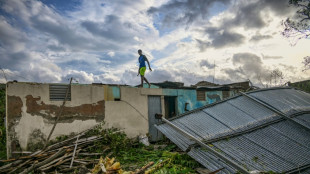
-
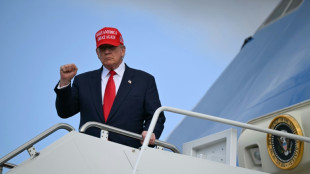 Trump stirs tensions with surprise nuclear test order
Trump stirs tensions with surprise nuclear test order
-
100 US local leaders will attend COP30 in 'show of force'
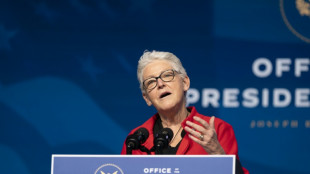
-
 UN warns of 'atrocities,' 'horror' in Sudan as RSF advances
UN warns of 'atrocities,' 'horror' in Sudan as RSF advances
-
Rodrigues hits ton as India stun Australia to reach Women's World Cup final

-
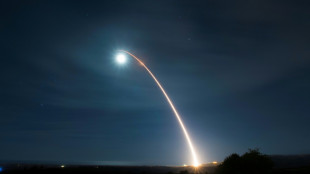 Trump's order on nuclear testing: what we know
Trump's order on nuclear testing: what we know
-
Spalletti returns to football with Juventus after Italy flop

-
 Rodrigues hits ton as India chase 339 to stun Australia in World Cup semis
Rodrigues hits ton as India chase 339 to stun Australia in World Cup semis
-
Saudi chases AI ambitions with homegrown firm pitched to global investors

-
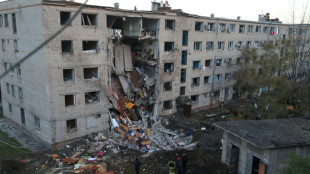 Russia batters Ukraine energy sites with deadly aerial strikes
Russia batters Ukraine energy sites with deadly aerial strikes
-
Stocks diverge as investors digest Trump-Xi talks, earnings
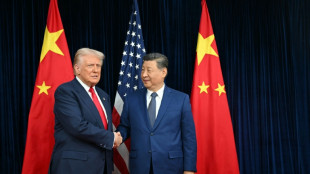
-
 'Better to go to prison': Israeli ultra-Orthodox rally against army service
'Better to go to prison': Israeli ultra-Orthodox rally against army service
-
Bublik downs fourth seed Fritz to reach Paris Masters quarters
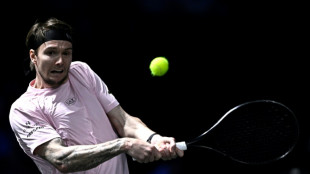
-
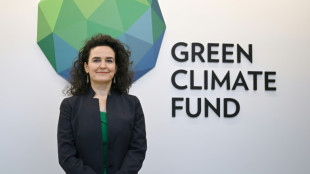 UN climate fund posts record year as chief defends loans
UN climate fund posts record year as chief defends loans
-
Man Utd must ignore outside noise to go in 'right direction', says Wilcox


Scientists find microplastics in blood for first time
Scientists have discovered microplastics in human blood for the first time, warning that the ubiquitous particles could also be making their way into organs.
The tiny pieces of mostly invisible plastic have already been found almost everywhere else on Earth, from the deepest oceans to the highest mountains as well as in the air, soil and food chain.
A Dutch study published in the Environment International journal on Thursday examined blood samples from 22 anonymous, healthy volunteers and found microplastics in nearly 80 percent of them.
Half of the blood samples showed traces of PET plastic, widely used to make drink bottles, while more than a third had polystyrene, used for disposable food containers and many other products.
"This is the first time we have actually been able to detect and quantify" such microplastics in human blood, said Dick Vethaak, an ecotoxicologist at Vrije Universiteit Amsterdam.
"This is proof that we have plastics in our body -- and we shouldn't," he told AFP, calling for further research to investigate how it could be impacting health.
"Where is it going in your body? Can it be eliminated? Excreted? Or is it retained in certain organs, accumulating maybe, or is it even able to pass the blood-brain barrier?"
The study said the microplastics could have entered the body by many routes: via air, water or food, but also in products such as particular toothpastes, lip glosses and tattoo ink.
"It is scientifically plausible that plastic particles may be transported to organs via the bloodstream," the study added.
Vethaak also said there could be other kinds of microplastics in blood his study did not pick up -- for example, it could not detect particles larger than the diameter of the needle used to take the sample.
The study was funded by the Netherlands Organisation for Health Research and Development as well as Common Seas, a UK-based group aimed at reducing plastic pollution.
Alice Horton, anthropogenic contaminants scientist at Britain's National Oceanography Centre, said the study "unequivocally" proved there was microplastics in blood.
"This study contributes to the evidence that plastic particles have not just pervaded throughout the environment, but are pervading our bodies too," she told the Science Media Centre.
Fay Couceiro, reader in biogeochemistry and environmental pollution at the University of Portsmouth, said that despite the small sample size and lack of data on the exposure level of participants, she felt the study was "robust and will stand up to scrutiny".
She also called for further research.
"After all blood links all the organs of our body and if plastic is there, it could be anywhere in us."
E.Schubert--BTB




